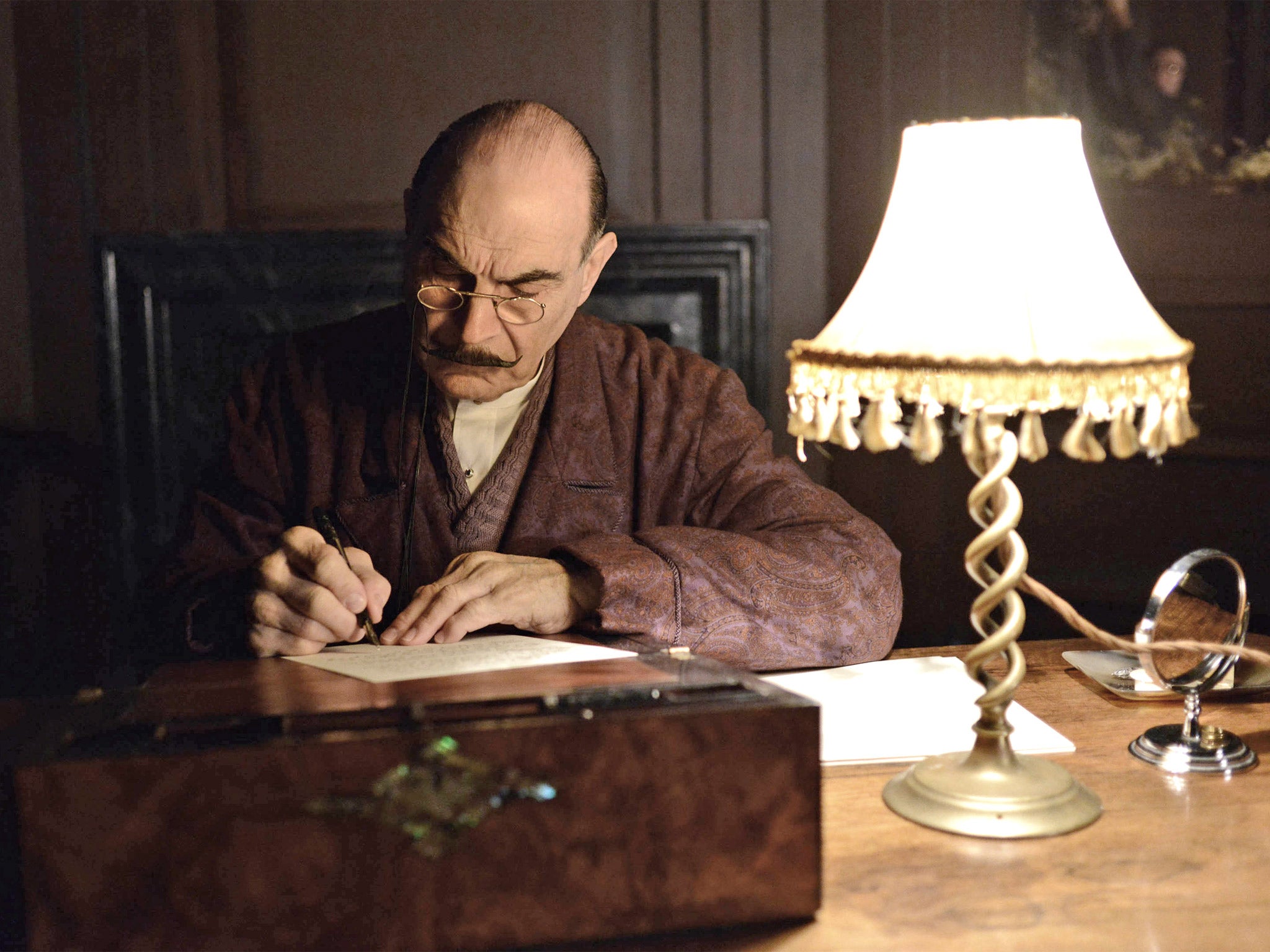Poirot - TV review: David Suchet bows out by playing the killer for a change
It wasn’t exactly The Killing or Broadchurch as the Belgian sleuth turned unlikely vigilante for his final episode

Your support helps us to tell the story
From reproductive rights to climate change to Big Tech, The Independent is on the ground when the story is developing. Whether it's investigating the financials of Elon Musk's pro-Trump PAC or producing our latest documentary, 'The A Word', which shines a light on the American women fighting for reproductive rights, we know how important it is to parse out the facts from the messaging.
At such a critical moment in US history, we need reporters on the ground. Your donation allows us to keep sending journalists to speak to both sides of the story.
The Independent is trusted by Americans across the entire political spectrum. And unlike many other quality news outlets, we choose not to lock Americans out of our reporting and analysis with paywalls. We believe quality journalism should be available to everyone, paid for by those who can afford it.
Your support makes all the difference.So Hercule Poirot turned out to be Dirty Harry, or “Le Sale Hercule”, and a doubly unlikely vigilante considering that David Suchet’s Belgian sleuth was wheelchair-bound for his much-trumpeted swansong. But then the wheelchair turned out to be a ruse so that he could go about his dirty work without suspicion. Cunning, eh? Or laughable, depending on your tolerance for this creaky old-school whodunit fare; it wasn’t exactly The Killing or Broadchurch, but the aptly titled Curtain did provide its own surprises – not least when Poirot, having shaved his top lip so that again he could wrong-foot his quarry, ripped off his fake waxed moustache. The symbolism wasn’t hard to miss.
The detective had come full circle, re-united with Captain Hastings, his own version of Dr Watson, at Stiles Court – “scene of their first murder”, as Hastings put it. Poirot was being as clear as Belgian politics, telling his “cher ami” that a murder was going to be committed at Stiles but that he neither knew the identity of the killer nor of the victim.
Hugh Fraser reprised the role of Hastings for the first time in a decade, but then 10 years is but the blink of an eye in terms of this ITV long-runner, which has been airing since Margaret Thatcher was still in office. Suchet has called Poirot “my invisible, closest and best friend”, and such a close identity with a character often creates interesting results, as with Jeremy Brett’s obsessive immersion in Sherlock Holmes in the late 1980s and early 1990s.
It won’t only be Suchet who misses the series, the show providing gainful employment for just about every drama school graduate of the past 25 years – and as always, the episode eschewed the stunt casting that detracts from ITV’s re-booted Miss Marple. Anne Reid and Helen Baxendale were about as starry as it got, Aidan McArdle playing the murderer-by-proxy – a seemingly innocuous ditherer who was in fact a manipulative sociopath who drove others to kill for him. For the sport of it. It was his belief that Norton could never be brought successfully to justice that drove Poirot to turn killer.
Christie wasn’t at the height of her powers when she penned this tale just a year before her own death in 1976, and Kevin Elyot seemingly didn’t deviate from a plot that found Poirot popping his clogs around the one-hour mark, leaving a 20-minute posthumous explanation in the form of a letter to Hastings. It was a strangely anti-climactic end for the “little Belgian chappie”, as Philip Glenister’s character (such an oafish toff that he just had to be a red herring) put it. But say what you like about the creaky plots and stock characters, Suchet has managed to well and truly eclipse any previous Poirots, including Peter Ustinov, and make the role definitively his own. Given the modern actor’s reluctance to be typecast, we may probably never see his like again.
Join our commenting forum
Join thought-provoking conversations, follow other Independent readers and see their replies
Comments